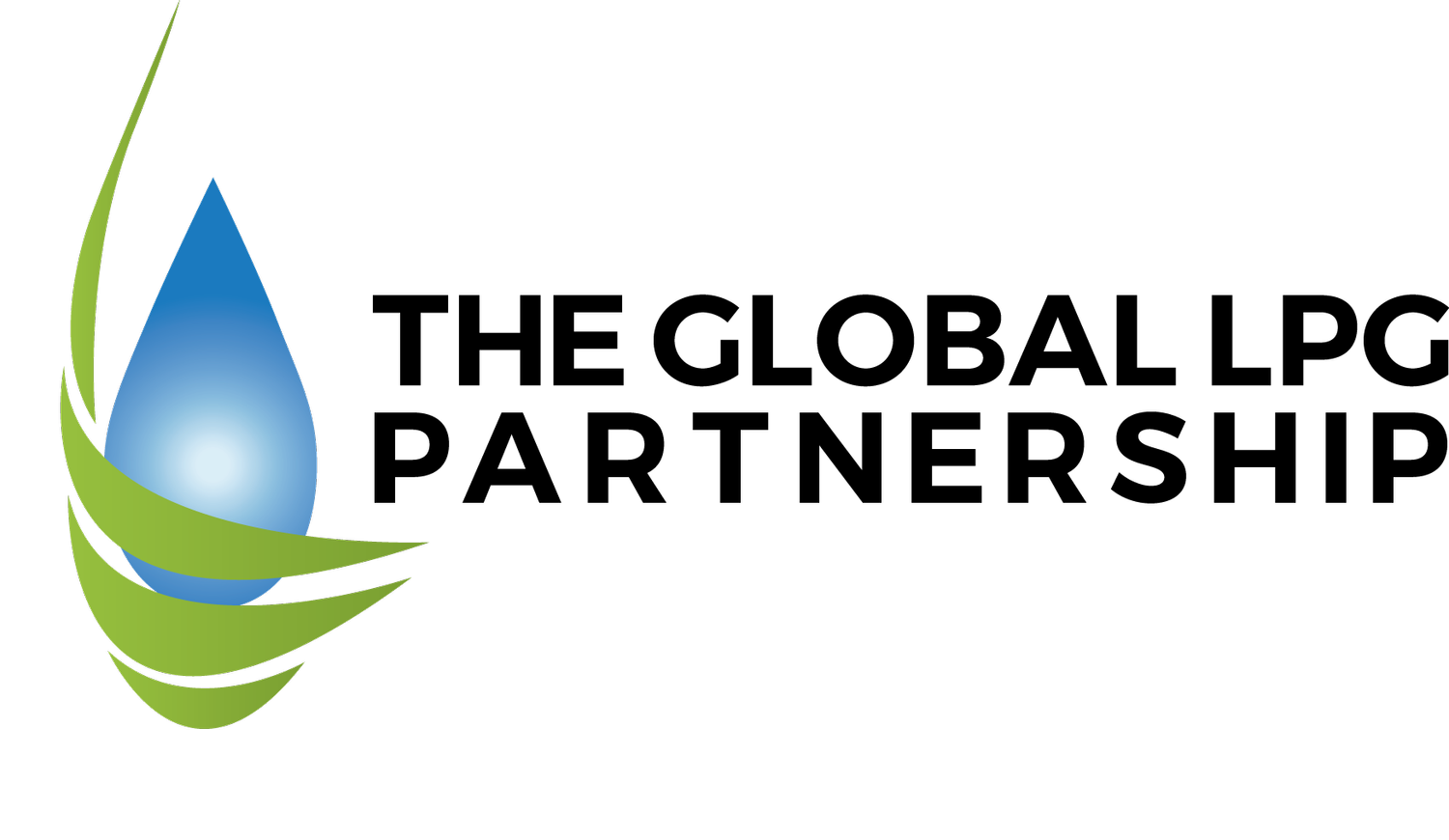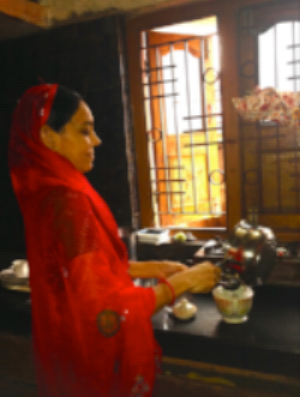GLPGP Year-End Review - December 2016
Message from Alex Evans, President & Chairman, Operating Committee
2016 was the bellwether year when LPG for energy access and clean cooking moved to the forefront of political and development agendas around the world.
The potential for impact from LPG has never been greater. Demand for our help has soared.
GLPGP has to date received requests to assist with LPG development from 18 countries spanning Africa, Asia and South America, nearly doubling from 2015. Numerous GLPGP partner governments have set ambitious but realistic targets, typically to expand LPG access and use to 50% or more of their populations, from 10-20% today. In Cameroon, for example, the first national LPG Master Plan was completed with major support from GLPGP and announced by the Government earlier this month, with implementation to start in Q1 2017. The plan defines over US$400 million of LPG investments and initiatives to deliver LPG affordably and sustainably to nearly 60% of Cameroon's population, representing 18 million people, up from around 10% now. Almost US $1 billion more in LPG investment projects has been defined in other first-mover partner countries to date.
2016 also saw a surge of world development system engagement with GLPGP to deepen and broaden partnerships around national LPG ecosystem reform, policy development, environmental health research and evaluation, investment project preparation and financing. The Partnership was also invited this year to chair, speak and contribute at a record number of high-level development events, by diverse organizations including the G20, the African Development Bank, the World Health Organization, the Government of India, and more.
This progress is excellent, but much remains to be done. More than 2.8 billion people still go without access to clean energy for cooking. 2017 will be a year of critical action, and your ongoing support is needed and welcomed. We, and all stakeholders, must redouble our collective efforts to move countries with sound LPG plans to implementation and financing of the projects that support this agenda. We need to help more countries plan national LPG solution strategies wisely, and to expand the availability of resources that support these efforts.
We have engaged with eight countries so far, and with future resource growth, will help more and more countries realize the potential for LPG to help their people.
We thank our readers for following the work done by GLPGP to support our partner countries in using LPG as a critical solution to address the vast health, environmental, and other problems caused by cooking with solid fuels.
Please read on to learn more about some of the highlights of 2016 - jumping-off points for an exciting 2017 to come.
And remember, you can also follow our work throughout the year by following us on Twitter via @globalLPG
Government of Cameroon officially adopts GLPGP-led national LPG Master Plan
On 14 December 2016, the Government of Cameroon announced the adoption of its National LPG Master Plan to support increased LPG penetration for household cooking from the current 12% level to 58% nationally by 2030. This target is tied to the country's 2035 Development Goals. The Master Plan was the result of two years of work by a broad-based inter-ministerial Ad Hoc Committee established on 15 April 2015, comprising GLPGP, the Ministry of Water and Energy, other agencies of the Government of Cameroon, and representatives of civil society and the private sector.
Implementation of the LPG Master Plan is expected to enable nearly 18 million Cameroonians to benefit from clean and efficient cooking with LPG, create 18,000 jobs nationwide, and save nearly 4 million tons of wood (or 15 million trees) every year due to the reduction in biomass use for cooking, resulting in a projected 3.4 million tons fewer CO2 emissions per year.
Rural LPG Pilot Launched with Self-Employed Women's Association in India
Following extensive studies on consumers' preferences, cooking fuel usage habits and willingness to pay for modern forms of energy in rural Gujarat, GLPGP and the Self-Employed Women’s Association (SEWA) of India launched a pilot project to promote adoption of LPG through consumer education and improved last-mile distribution. The first users for the pilot obtained their LPG connections in October 2016. The pilot will also provide global researchers with data about rural LPG adoption and its impact on health.
The pilot project, organized in collaboration with the US Centers for Disease Control and Prevention and the University of British Columbia, is part of a campaign to expand last-mile LPG distribution and raise awareness on the benefits of clean cooking with LPG across a range of socio-economic status. GLPGP will continue to co-lead this initiative alongside SEWA, contributing technical and logistical advice on LPG supply, and dissemination of study findings to key national and international policy-makers including the Indian Ministry of Petroleum and Natural Gas and major LPG companies operating in India.
Clean Cooking for Africa Scientific Advisory Board Gets Underway
The inaugural meeting of the Clean Cooking for Africa Scientific Advisory Board (SAB) was held on 14 June 2016 at the headquarters of KfW, the German state development bank, in Frankfurt, Germany. The meeting was officiated by Dr Thomas Duve, Director of the Southern Africa and Regional Funds Department at KfW. The SAB, convened by KfW, will help strengthen the evidence-base for clean cooking with LPG, and is instrumental to effective program execution by GLPGP, the Clean Cooking for Africa Program's implementing partner.
SAB members comprise a very experienced group of scientists with combined health and environmental/climate knowledge: Dr Nigel Bruce, Emeritus Professor of Public Health at the University of Liverpool (SAB Chair), Dr Eva Rehfuess, Senior Scientist at the Ludwig-Maximilians-University, Munich, Professor Kirk Smith, Director of the Global Health and Environment Program at the University of California, Berkeley, and Dr Kristin Aunan, Senior Research Fellow at the Center for International Climate and Environmental Research (CICERO), Norway. The SAB will soon publish a scientific brief on the climate, forest and development impacts of cooking with LPG.
GLPGP Joins Executive Committee of OFID Energy Access Platform
On 23 March 2016, the OPEC Fund for International Development (OFID) and the World Petroleum Council launched the Oil and Gas Industry Energy Access Platform (EAP) to support the goals of UN Sustainable Energy for All. GLPGP was invited to join the EAP Executive Committee, and leads the EAP Task Force on Clean Cooking Solutions.
The EAP seeks to leverage the technical expertise of the oil and gas industry to support the achievement of Sustainable Development Goal (SDG) 7 on universal access to sustainable energy. It provides a platform for the private and public sectors to collaborate substantively on energy access, including identifying opportunities for corporate social responsibility, and integrating energy access into country-level policymaking and project development. EAP members include Total, Shell, The World Petroleum Council, and The International Gas Union, among others. Other private sector actors and development financial institutions are expected to join the initiative in due course.
Article "More Doing, Less Talking" Featured in G20 Official Magazine
An article authored by GLPGP Chairman Kimball Chen called More Doing, Less Talking was featured in the G20 Summit issue of G20 Magazine's Executive Talk Series. The article highlighted the role of LPG as a superior and feasible immediate solution to the global clean cooking problem. Mr. Chen also participated in, and contributed to, the G20 Business Summit in Hangzhou, China on 3-4 September. The Summit featured a keynote address by Chinese President Xi Jinping, and panel appearances by H.E. Jacob Zuma, Prime Minister of South Africa, H.E. Justin Trudeau, Prime Minister of Canada, H.E. Malcolm Turnbull, Prime Minister of Australia and H.E. Mauricio Macri, President of Argentina.
Deepening Partnership between GLPGP and World Bank on Clean Cooking
GLPGP continues to develop and deepen partnerships with key international development institutions. Following a series of discussions in late 2015 and early 2016, the World Bank and GLPGP formally agreed to work to deepen their collaboration to promote the usage of clean fuels such as LPG for household cooking and heating in multiple countries. The deepened partnership will initially focus on collaboration at the country level in Kenya and Bangladesh, with joint activities being prepared for 2017 actions. The two organizations will also work together on thought leadership and advocacy initiatives relating to clean cooking with LPG, and subsequently expand collaboration to additional countries.
High-Level LPG Conference in Bhubaneswar, India
GLPGP Chairman Kimball Chen chaired the opening panel of the International Conference on LPG as a Catalyst of Social Change, held on 1-2 September 2016 in Bhubaneswar, India. Mr Chen also gave a presentation on socio-cultural factors affecting the adoption of LPG across various countries, while GLPGP CFO John Hauge shared GLPGP's efforts in working with the Government of Cameroon to create that country's first national LPG Master Plan.
Organized by the Research & Development Initiative in collaboration with leading Indian public sector oil companies - Indian Oil Corporation, Bharat Petroleum and Hindustan Petroleum, the conference was attended by 300 delegates from more than 10 countries. Distinguished guests and speakers included Dharmendra Pradhan, India's Minister of Petroleum and Natural Gas, and Lakshmi Puri, UN Assistant Secretary General and Deputy Executive Director of UN Women. The conference highlighted the efforts of Indian government in scaling up LPG access for families below the poverty line through the Give It Up campaign and and Pradhan Mantri Ujjwala Yojana program, both launched in 2016.
Multi-Country Health Research Trial Funded by National Institutes of Health / Gates Foundation
The US National Institutes of Health, with support from the Bill and Melinda Gates Foundation, has funded a $30.5 million, multi-country research trial to investigate the correlation between the use of LPG for clean cooking and measurable health impacts, particularly for women and children. GLPGP will be a partner in the research trial.
The research trial will involve Emory University researchers and their in-country research partners monitoring stove use and exposure to household air pollution in intervention and control households in India, Rwanda, Guatemala, and Peru over a 30-month period. The study will assess health outcomes such as birth weight, growth, respiratory functions and infections in children, blood pressure and inflammation in adults. GLPGP is providing technical support on the supply aspects of the trial, and on user behavior change and education in the safe use of LPG.
Partnering with UNEP Climate and Clean Air Coalition
GLPGP has been officially recognized as a partner of the United Nations Environment Programme (UNEP)'s Climate and Clean Air Coalition (CCAC), which aims to promote the reduction of short-lived climate pollutants (SLCPs) such as methane and black carbon to meet global climate targets. GLPGP will take on an active role in the Household Initiative on Reducing SLCPs from Household Cooking and Domestic Heating. Through its participation in CCAC, GLPGP hopes to raise greater awareness about the role that LPG can play in cutting emissions of SLCPs and reducing solid fuel burning in inefficient stoves.
WHO Regional African Workshop on Indoor Air Quality
GLPGP CFO John Hauge addressed the Regional African Workshop on the WHO Guidelines for Indoor Air Quality: Household Fuel Combustion in Addis Ababa, Ethiopia, on 25-27 October 2016. Mr Hauge introduced GLPGP and presented lessons from GLPGP's experience in scaling up LPG worldwide, including from the process of creating the first national LPG Master Plan in Cameroon. Meeting delegates included representatives from the health, environment and energy ministries of Botswana, Burkina Faso, Cameroon, Ethiopia, Ghana, Kenya, Mali, Mozambique, Nigeria, Rwanda, and Zambia.





